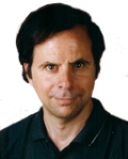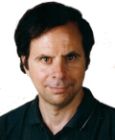Media
Plato’s Prognosis of “Alternative Facts”
The philosopher predicted the perils of "alternative facts." Is it coming true?
Posted February 12, 2017

On January 21, White House Press Secretary Sean Spicer stated about the crowd size at President Trump’s inauguration that it was "the largest audience to ever witness an inauguration, period."
The next day, on Meet the Press, Chuck Todd pressed Trump senior counsel, Kellyanne Conway, about the veracity of Spicer’s statement. “Why put him out there for the very first time to utter a provable falsehood?” asked Todd. “It undermines the credibility of the entire White House press office on day one.”
Conway responded, “No it doesn't, don't be so overly dramatic about it, Chuck. You're saying it's a falsehood, and Sean Spicer, our press secretary is giving alternative facts to that.” Todd countered, “…Alternative facts are not facts — they're falsehoods." Indeed, aerial photos plus transit records comparing Obama’s 2009 inaugural turnout with that of Trump disconfirmed that Trump’s crowd size was larger than that of Obama.
So what did Conway mean by “alternative facts”?
This question is not merely academic. It has profound implications for human existence. The idea of a fact is one upon which virtually every aspect of human existence depends. In their absence, there can be no laws, no cultural traditions, no science, no medical breakthroughs, no history, no news, or any other form of knowledge. Facticity is not just another aspect of civilization. It is its essence. So, talk of “alternative facts” should concern us all. Accordingly, this post will examine two contrasting philosophies of “alternative facts,” namely that of Plato and George Berkeley. In this philosophical light, it will discuss Plato’s prediction about what to expect from a government bearing such alleged facts.
So, what, in the first place, is a fact?
According to Aristotle, “To say of what is that it is not, or of what is not that it is, is false, while to say of what is that it is, and of what is not that it is not, is true.” So, for Aristotle, a fact is that which makes a statement true or false. As such, it determines whether you can know something or not know it; for you cannot know anything that is not a fact. If it's false to fact that Trump’s crowd is the largest ever, then neither Spicer nor Trump nor anyone else could intelligibly claim to know it.
From antiquity, the philosophical challenge has been to clarify the nature of facts. Granted they determine whether a belief or statement is true or false, what are these “things” that do this? For Plato, there are transcendent facts called “Forms,” which provide the basis of all knowledge. These so-called “Forms” are ideals or perfect beings, which have a “heavenly” existence outside of time and space. Because they exist outside of time and space, they are eternal and unchangeable. For example, there is a form of Triangularity. When you know what a triangle is, you have grasped its form, and thus have knowledge of it. Undeniably, a triangle is a three-sided, closed figure; so the statement, “All triangles are three-sided” is a fact. Plato would say that it captures the essence of Triangularity. As such, it is an eternal and unchangeable truth. You can’t even imagine its being false, for a triangle could never be other than three-sided without it ceasing to be a triangle. Moreover, even if there were no actual, concrete triangular objects existing in the material world, the form of Trangularity would still endure. Further, for Plato, the Forms are not subjective things that depend on human minds to perceive them. Were there nobody to think about triangles, Triangularity would still exist.
In contrast, a statement about space-time objects, which we can grasp through our senses, such as “The Trump inauguration is the largest ever,” is not necessarily true. You can imagine that it is false (as when Obama’s was larger). It is also not unchangeable because the next president could have a much larger turnout; and it exists only in the minds of those who entertain it. Plato claimed that you can only have opinion, not knowledge, about such statements about the material world.
So, for Plato, there can, indeed, be alternative opinions, but not alternative facts because facts are eternal and unchangeable; they exist outside the limits of space and time, and outside of human minds. So, on Plato’s view, the statement that “Trump’s inauguration is the largest ever” would be just Conway’s opinion; and in no sense, a fact. On the other hand, Chuck Todd’s denial of this claim is not a fact either, inasmuch as it too is just his opinion.
Nevertheless, Plato did not think that all opinions were on the same par. Indeed, for him, some opinions, though still not knowledge, could be better than others. One opinion would be better than another when it more closely “participated in” (resembled or instantiated) a Form. That is, all opinions, by virtue of referring to space-time objects and events, are imperfect—subject to error, not eternal, and changeable; but some are less imperfect than others, hence closer to the truth. Consider this statement: “If A is greater than B then it is false that B is greater than A.” In contrast to a mere opinion, this statement is an eternal, unchangeable truth. When you try to deny it, you simply make no sense! So, it’s definitely a fact. Now, any opinion that “participates” in this fact will be better than one that flatly denies or contradicts it. So, while still not a fact, the following opinion is closer to the truth than its denial: “If I count more people in the Obama inauguration photo than that in Trump’s, then it is false that the former is greater than the latter.” In contrast, Conway appears to admit that Obama drew a larger crowd than Trump, but still refused to admit that the latter was not greater than the former because “the press secretary was giving an alternative fact to that.” True, one’s eyes can deceive us, and Plato (no less than Conway) would be among the first to admit it; but Conway wants the American people to blindly believe her (or Spicer) rather than their own eyes (see the photos here) and to ignore their own rational judgment, which clearly tells them that, what is greater than something else cannot be less than it. In Platonic terms, this make absolutely no sense.
So what else could Conway possibly mean by an “alternative fact”?
Bishop George Berkeley (the philosopher they named Berkeley California after) had a different take on facts. Berkeley famously proclaimed that, “to be is to be perceived” (esse est percipi). In contrast to Plato, this means that reality does not exist outside the minds of perceivers. There are no external objects, just a bunch of perceptions. Thus, what makes an apple an apple is a certain roundish shape, red color, gustatory taste if eaten, and so forth. Subtract these sense perceptions and there is nothing left of the apple; no external substance behind these perceptions. As such, a problem Berkeley faced was accounting for how an object could continue to exist when there was no one perceiving it. The response that the good Bishop provided is famously enshrined in this limerick by the British priest and theologian, Ronald Knox:
There was a young man who said "God
Must find it exceedingly odd
To think that the tree
Should continue to be
When there's no one about in the quad."
Reply:
"Dear Sir: Your astonishment's odd;
I am always about in the quad.
And that's why the tree
Will continue to be
Since observed by, Yours faithfully, God.
So, in the end, God is responsible for the facts. Facts are the perceptions that God also perceives. Here, God emerges as the divine projector who projects the veridical perceptions on our finite minds—that is, we see what God sees. This enabled the Bishop, true to his faith, to distinguish between facticity and the musings of a madman. So, if Conway tells you that there are more people in the photo of Trump's inauguration than in that of Obama’s, and you see more people in the latter than in the former, who is decide who’s correct? Berkeley’s answer was that it is the perception that’s also in the mind of God. But does God see what you see or does God see what Conway (or Trump) sees? “The ideas of Sense,” said Berkeley, “are allowed to have more reality in them, that is, to be more (1) STRONG, (2) ORDERLY, and (3) COHERENT than the creatures of the mind.” So, the facts are those perceptions that consistently fit in with other perceptions that you also have. Now, let’s say you view the photos side by side and the Obama crowd looks larger than Trump’s; everyone you speak with has a similar perception; the media consistently reports the same thing; and the media also reports that there is a larger collection of transit tickets for the Obama inauguration. Given this coherent set of sense perceptions, it would be a sign that Spicer’s aberrant claim is but a “creature” of his (or Trump’s) mind, not truly a fact.
In fact, the Platonic and Berkelean views of facticity are examples of two of the most widely accepted theories of truth, the so-called “correspondence theory” and “coherence theory,” respectively. Notice that neither theory appears to support the idea of alternative facts although there may be alternative opinions, some better than others, and alternative “creatures of the mind.”
However, there is a monumental and very real danger that a defender of "alternative facts" could find a bedfellow in the coherence theory of truth (albeit with some distortion). Imagine that our perceptions are being staged or set up, not by God, but instead by a very powerful and malevolent human being, a tyrannical despot who only cares about his own interests. Imagine that this despot controls all that you see and hear on the media, what is accessible online, what is published, and what you learn in school. Imagine that those who dissent or deny what they are consistently told by government and its agents are sent off to mental hospitals or otherwise silenced. In such a world, all your perceptions might be relatively settled and consistent. This would be a world of “alternative facts,” albeit ones that exist for the purpose of exploiting its inhabitants in order to gratify a malignant dictator. This is not in the least farfetched because, historically, it is the blueprint of most dictators who have consistently had fixations with silencing or controlling the media and a disposition to fashion reality as they want it to be. Allowing such a malignant despot to gain control is like blindly playing with fire, because, if not unchecked, it spreads like wild fire and consumes virtually every aspect of human existence. Art is censored, so is music. Philosophy is confined to what conforms to government standards. The opinions of political opponents and other oppositional groups are silenced. Graduate students submit their dissertations to government for approval. Religion is carefully regulated and monitored by the state so that there is coherence and uniformity; and any dissent or non-belief is viewed as heretical and beyond toleration. Civil liberties such freedom of speech and of assembly are whispers in the wind that soon grow increasingly faint until extinction.
Technological innovations may, in the not so distant future, make it easier to imprint upon the minds of the masses those perceptions that the dictator sees fit. The computer chip company, Intel, has predicted that human beings will soon be scanning the internet with their brains, hooked up to the net by wireless electrodes installed in the brain. In such a world, it would not be difficult for a government authority to literally download its “alternative facts” into the minds of U.S. citizens. Presently, the Defense Advanced Researcher Project Agency (DARPA), the research branch of the U.S. Department of Defense that brought us the Internet, is engaged in a 60 million dollar project to create such wireless links to the internet. In the hands of a malignant dictator who has a desire to create “alternative facts,” this may be the perfect storm. Today, many of us already have one foot in cyberspace, the other in physical space. Putting the other foot squarely into the plane of virtual reality—which is, after all, a coherent set of “alternative facts"—may be next. Such a “matrix” is still science fiction or, at least it is still in the offing.
The concept, however, is an ancient one, anticipated by Plato himself. In The Republic, Plato famously presented a parable of men imprisoned in a cave, chained all their lives so that they could only perceive shadows of objects, passing before them on a cave wall, cast by men carrying the objects back and forth behind them, and in front of a fire. These prisoners believed that the shadows were the only true reality, and would kill anyone who tried to set them free.
Symbolized in this allegorical paradigm of “alternative facts,” Plato depicted the disposition of humankind to uncritically and dogmatically embrace a coherent, albeit false, conception of reality. In this light, the philosopher admonished how democracy would easily morph into dictatorship under the sway of a seasoned demagogue and illusionist. Discontented with their lot, Plato predicted that the masses would inevitably become intoxicated by a self-proclaimed “protector” who would win them over through calculated use of what is tantamount to “alternative facts.” Explained Plato, “by the favorite method of false accusation” this demagogue would declare war on all those who challenged him; take them to court, have them executed, or banish them. And all along, “with unholy tongue” he would mesmerize the masses with deceitful promises, “hinting at the abolition of debts and partition of lands.” Clinging with blind tenacity to such pipe dreams, they would sooner kill anyone who tried to set them free, than to heed their warning. As a consequence, “liberty…passes into the harshest and bitterest form of slavery.”
Plato’s ancient admonition is still timely: Beware those bearing “alternative facts.” Here lies the bait whereby tyrants divest us of our freedom, and enslave us.




